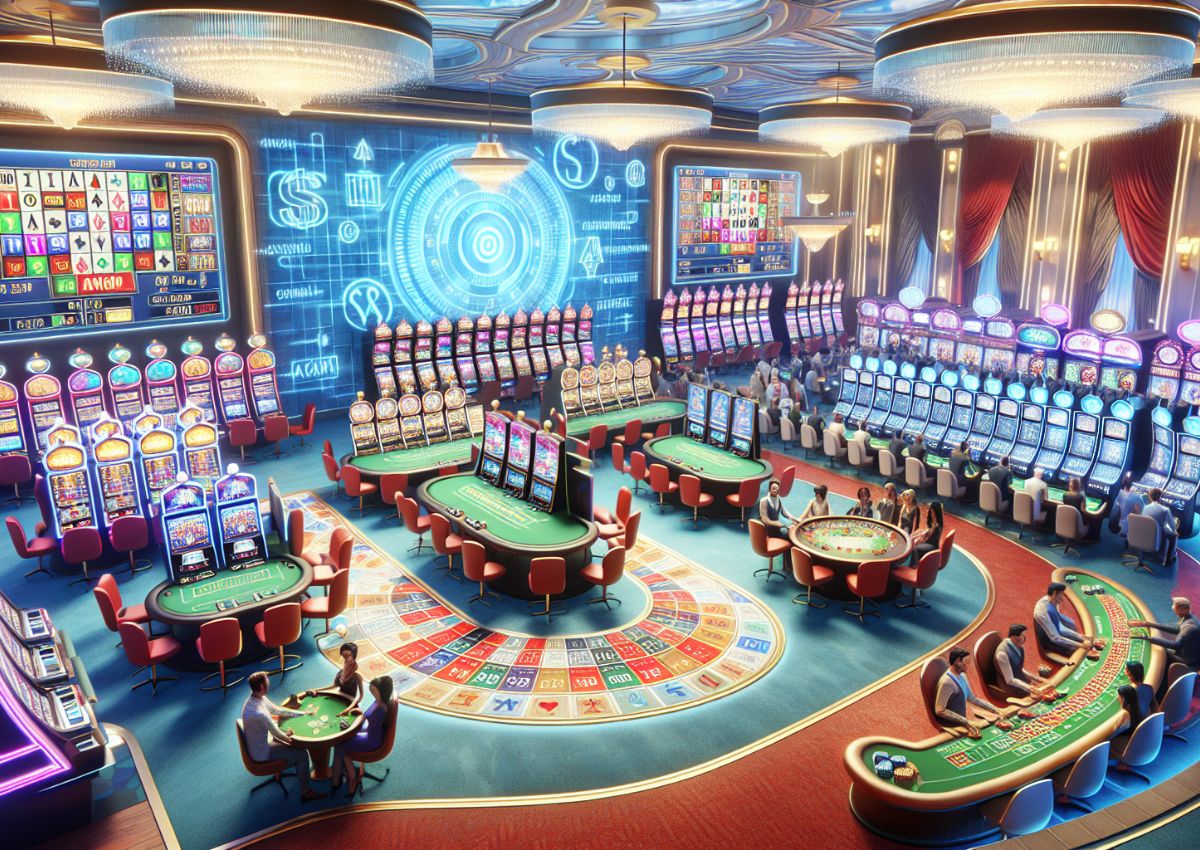Why Gamblers Become Pulled Towards Casino Entertainment

Gambling games have long captivated players from all walks of life, drawing them into vibrant casinos filled with the noises of spinning wheels, clattering chips, and cheering crowds. The thrill of chance and the allure of potential winnings create an exhilarating atmosphere that keeps gamblers returning for more. Whether it is the excitement of a slot machine, the thoughtful play of poker, or the anticipation of a roulette wheel, casino games offer a distinct combination of entertainment and risk that can be hard to ignore.
At the heart of this fascination lies a psychological pull that varies from person to person. For some, the rush of hitting a jackpot can elevate their mood, while for others, it's a social experience that brings friends together. The colorful visuals, engaging sounds, and sometimes lavish environments of casinos greatly improve the appeal, making each visit an experience waiting to unfold. As we delve into why gamblers are drawn to these games, we uncover the underlying motivations and emotions that fuel their passion for the betting tables.
Understanding Gambling Psychology
The allure of casino games commonly derives from the intricate psychology of gambling as a whole. Many individuals find appealing the excitement of risking money for the opportunity of winning more, as it connects with a deep-seated human desire for thrill and reward. This rush can create a powerful emotional experience. The mix of risk and potential monetary gain can activate a release of dopamine, making players feel exhilarated.
Moreover, the design of casino games is designed to keep players interested. The use of vibrant lights, enthralling sounds, and the social atmosphere of casinos can heighten the excitement. Players frequently find themselves submerged in these environments, where the expectation of a win keeps them coming back for more. This sensory stimulation encourages longer gaming sessions, as the immediate feedback from wins, however minor, reinforces the desire to keep playing.
Finally, cognitive distortions play a crucial role in gambling behavior. Many players fall prey to the belief in control, believing they have power over outcomes even in games of luck. non GamStop bookmakers This mindset can lead to overoptimism and the persistence of play, despite rising losses. Additionally, gamblers typically remember their wins more vividly than their losses, which can skew their perception and fuel the desire to keep playing. This multifaceted interplay between emotions and cognitive factors helps explain why so many are pulled towards casino games.
The Allure of Gaming Settings
The vibe of a casino is exceptionally enchanting, pulling in bettors with its blend of excitement and suspense. The sights and sounds of twirling slots, cheering participants, and the repetitive jingling of cash create an immersive experience that is difficult to ignore. The bright neon signs and animated arrangement foster a feeling of excitement that keeps gamblers involved and encourages them to linger for longer periods. This captivating environment contributes to the overall charm of gambling experiences, enticing both inexperienced and seasoned players alike.
Furthermore, casinos are designed to engage the sensory experience in a manner that makes visitors feel as though they are setting out on a exciting journey. The thoughtful positioning of gaming options, comfortable areas, and complimentary refreshments enhance the overall experience, making gamblers feel appreciated and treated well. Many gambling spaces also include themed decorations and lavish motifs that carry visitors to various dimensions, amplifying the excitement. Such settings foster a notion of escapism, allowing players to ignore their everyday lives and immerse into the exciting domain of chance.
Ultimately, the existence of fellow gamblers amplifies the communal aspect of gaming, creating a collective thrill. Engagements among participants, either through playful chitchat or mutual excitement during a big success, cultivate a sense of bonding that many find attractive. This social engagement enhances the journey of participating in gambling experiences, transforming it from a solitary activity into a collective adventure. The mixture of excitement, captivating atmospheres, and interpersonal ties makes gaming venues an unmissable destination for gamblers desiring fun and a chance to profit.
Grasping Game Dynamics
Casino games are engineered with distinct mechanics that draw in players. Every game has its own set of rules, wagering schemes, and probability ratios, allowing players to engage with the game on multiple levels. The thrill of submitting a bet and the anticipation of the outcome creates an exciting atmosphere. Understanding these mechanics can deepen a player's appreciation for the game and elevate their overall experience.
An additional crucial aspect of game mechanics is the concept of randomness. Many casino games, especially poker machines and table games, rely on randomizers or shuffling to determine outcomes. This randomness is what keeps players returning; the unpredictable nature of the game creates a sense of possibility and excitement. Knowing that each play or hand is independent of the last enhances to the appeal, as players feel they have a chance at winning, regardless of past outcomes.
Finally, the emotional response connected with game mechanics should not be overlooked. The excitement of a major payout or the tension during pivotal moments are fundamental to the enjoyment of casino games. Such emotional highs and lows utilize psychological triggers that keep players engaged for extended periods. Understanding these emotional responses to game mechanics can help explain why so many are enticed by the thrill of casino games, continually seeking that upcoming exhilarating moment.
